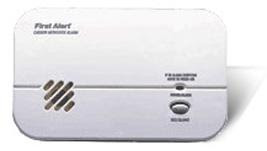Time is Running Out!

Back in the fall when the federal tax credit for homebuyers was extended and expanded, the April 30th deadline seemed so far away. If you look at your calendar today, you willl notice that April 30th, the last date for a signed purchase and sales agreement to be in place, is only 82 days away! I will admit that Spring has started early this year with buyers taking advantage of the homebuyer tax credits. But, there a lot of buyers that are still procrastinating. In the real estate world 82 days is not a long time. Don't miss out on this excetional opportunity to buy a home! With low prices, low rates and up to $8,000.00 in tax credits (for first time homebuyers and the up to $6,500.00 for previous homeowners), this is an ideal time to buy a home! Help spread the word! Tell everyone you know about this excetional opportunity!


















